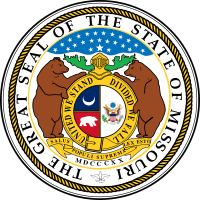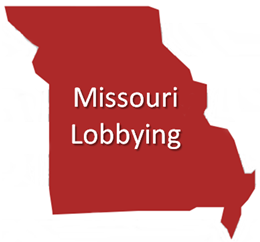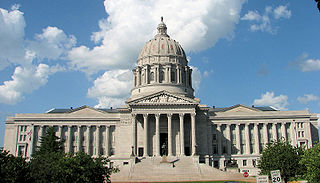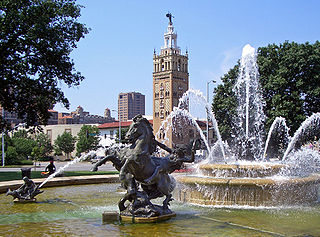August 24, 2016 •
Missouri Legislator Requesting Special Session
Missouri Sen. Bob Dixon wants Gov. Jay Nixon to call a special session to close a loophole in the state’s drunk driving law and to ask the Legislature to support a pilot program for the Missouri Public Defender System. If […]
 Missouri Sen. Bob Dixon wants Gov. Jay Nixon to call a special session to close a loophole in the state’s drunk driving law and to ask the Legislature to support a pilot program for the Missouri Public Defender System.
Missouri Sen. Bob Dixon wants Gov. Jay Nixon to call a special session to close a loophole in the state’s drunk driving law and to ask the Legislature to support a pilot program for the Missouri Public Defender System.
If the drunk driving loophole is not addressed, thousands of drunk drivers could be released on a technicality or given a lesser charge because of a mistake in the law regarding how breathalyzer equipment is calibrated.
Dixon is asking for the special session to occur next to the Legislature’s veto session. The veto session begins September 14.
Gov. Nixon has not yet commented on whether he will call a special session.
Photo of the Missouri State Capitol by Nickbigd on Wikimedia Commons.
August 2, 2016 •
Special Election Called for Missouri Senate District 4
Gov. Jay Nixon issued a writ of election to fill the vacancy for Missouri Senate District 4. Joseph Keaveny vacated the seat on July 7, 2016, to become an administrative law judge at the Department of Labor. Interested candidates must […]
 Gov. Jay Nixon issued a writ of election to fill the vacancy for Missouri Senate District 4. Joseph Keaveny vacated the seat on July 7, 2016, to become an administrative law judge at the Department of Labor.
Gov. Jay Nixon issued a writ of election to fill the vacancy for Missouri Senate District 4. Joseph Keaveny vacated the seat on July 7, 2016, to become an administrative law judge at the Department of Labor.
Interested candidates must file declarations of candidacy with the Office of the Secretary of State by September 7, 2016, for the special election on November 8, 2016.
June 8, 2016 •
St. Louis, MO Considering a Limit on Political Contributions
St. Louis Alderman Scott Ogilvie recently introduced legislation to limit campaign contributions to local candidates. Board Bill No. 53 prohibits candidates from accepting contributions exceeding $10,000 per city election from any person, entity, or committee. The amount would increase in […]
 St. Louis Alderman Scott Ogilvie recently introduced legislation to limit campaign contributions to local candidates.
St. Louis Alderman Scott Ogilvie recently introduced legislation to limit campaign contributions to local candidates.
Board Bill No. 53 prohibits candidates from accepting contributions exceeding $10,000 per city election from any person, entity, or committee. The amount would increase in April in each odd numbered year to coincide with any increase in the consumer price index.
Ogilvie’s proposal also defines election periods for the purposes of contribution limits, creates a Municipal Officials and Officers Ethics Commission, makes contributions from minors age 16 or younger attributable to parents or guardians, and sets penalties for violations of the bill.
If passed, the ordinance would be effective April 6, 2017.
Photo of the Gateway Arch in St. Louis by Daniel Schwen in Wikimedia Commons.
May 16, 2016 •
Missouri Legislature Adjourns
The 98th General Assembly adjourned Friday, May 13. Although ethics reform was a top priority this session, lawmakers fell short of passing bills creating political contribution limits or prohibiting lobbyist gifts. The Legislature did approve a 6-month waiting period for […]
 The 98th General Assembly adjourned Friday, May 13.
The 98th General Assembly adjourned Friday, May 13.
Although ethics reform was a top priority this session, lawmakers fell short of passing bills creating political contribution limits or prohibiting lobbyist gifts. The Legislature did approve a 6-month waiting period for public officials seeking to become lobbyists as well as prohibit legislators from serving as paid political consultants.
Both houses stand adjourned until Wednesday, May 25. They will convene for a technical session and then adjourn sine die on May 30 pursuant to constitutional mandate.
May 9, 2016 •
Missouri Governor Signs Ethics Legislation
Missouri Gov. Jay Nixon signed two ethics bills on Friday, May 6. One bill creates a revolving door provision for lawmakers and statewide elected officials seeking to become lobbyists. They must wait at least six months after their terms end […]
 Missouri Gov. Jay Nixon signed two ethics bills on Friday, May 6.
Missouri Gov. Jay Nixon signed two ethics bills on Friday, May 6.
One bill creates a revolving door provision for lawmakers and statewide elected officials seeking to become lobbyists. They must wait at least six months after their terms end before engaging in lobbying. The second bill requires candidates to dissolve their campaign committees and either refund or donate the remaining funds upon registering as lobbyists.
Both bills are effective August 28, 2016.
April 21, 2016 •
Missouri General Assembly Sends Ethics Legislation to Governor
Missouri lawmakers sent legislation to the governor on Wednesday as part of the state’s attempt at ethics reform. One bill would create a revolving door provision, prohibiting legislators and statewide elected officials from lobbying until six months after their respective […]
 Missouri lawmakers sent legislation to the governor on Wednesday as part of the state’s attempt at ethics reform. One bill would create a revolving door provision, prohibiting legislators and statewide elected officials from lobbying until six months after their respective terms end. Because he has expressed a need for ethics reform since 2009, Gov. Nixon is likely to sign the bill.
Missouri lawmakers sent legislation to the governor on Wednesday as part of the state’s attempt at ethics reform. One bill would create a revolving door provision, prohibiting legislators and statewide elected officials from lobbying until six months after their respective terms end. Because he has expressed a need for ethics reform since 2009, Gov. Nixon is likely to sign the bill.
Another piece of legislation still under consideration involves a potential ban on lobbyist gifts to public officials. The Senate recently voted on an amendment to remove the ban from the bill and, instead, to replace it with a $40 per-gift limit for each lawmaker.
April 15, 2016 •
Missouri Governor Signs Ethics Bill
Missouri Gov. Jay Nixon signed House Bill 1983 yesterday, prohibiting statewide elected officials and legislators from receiving compensation as paid political consultants on behalf of other officials or members of the General Assembly. The bill is the first ethics-related legislation […]
 Missouri Gov. Jay Nixon signed House Bill 1983 yesterday, prohibiting statewide elected officials and legislators from receiving compensation as paid political consultants on behalf of other officials or members of the General Assembly. The bill is the first ethics-related legislation to cross the governor’s desk since multiple lawmakers resigned last year amid embarrassing sex scandals.
Missouri Gov. Jay Nixon signed House Bill 1983 yesterday, prohibiting statewide elected officials and legislators from receiving compensation as paid political consultants on behalf of other officials or members of the General Assembly. The bill is the first ethics-related legislation to cross the governor’s desk since multiple lawmakers resigned last year amid embarrassing sex scandals.
While the law does not address the conduct issues of the past, Nixon believes it is a step in the right direction and will strengthen the ethics laws he believes are the weakest in the nation. Missouri is one of few states with no campaign contribution limits, no limits on lobbyist gifts to lawmakers, and no revolving door provisions preventing legislators from immediately lobbying after leaving office.
A revolving door ban, prohibiting legislators from serving in office one day and returning as lobbyists the next, has been a priority for the Missouri General Assembly as it considers sweeping ethics reform legislation. The House passed a bill earlier […]
 A revolving door ban, prohibiting legislators from serving in office one day and returning as lobbyists the next, has been a priority for the Missouri General Assembly as it considers sweeping ethics reform legislation.
A revolving door ban, prohibiting legislators from serving in office one day and returning as lobbyists the next, has been a priority for the Missouri General Assembly as it considers sweeping ethics reform legislation.
The House passed a bill earlier in the year barring lawmakers from lobbying for one year after leaving office. The Senate removed the waiting period and wanted legislators to simply finish their respective terms before becoming lobbyists.
After months of deliberation and negotiation, a conference committee reached an agreement Wednesday both sides are likely to approve. The compromise would prohibit legislators from working as paid lobbyists for six months after their terms expire.
If both houses approve the committee’s recommendations, the bill will be sent to Gov. Jay Nixon for final approval.
Photo of the Missouri State Capitol by Nickbigd on Wikimedia Commons.
January 20, 2016 •
Missouri Ethics Bill Moves through House Committee
Missouri House Bill 2166, just one of many ethics bills moving through the legislature, passed the Government Oversight and Accountability Committee on Tuesday and will be sent to the full House for further debate. The bill bans most lobbyist gifts […]
 Missouri House Bill 2166, just one of many ethics bills moving through the legislature, passed the Government Oversight and Accountability Committee on Tuesday and will be sent to the full House for further debate. The bill bans most lobbyist gifts to state public officials and requires itemization of expenditures on lobbying reports for certain events unless all members of the legislature or all statewide elected officials are invited.
Missouri House Bill 2166, just one of many ethics bills moving through the legislature, passed the Government Oversight and Accountability Committee on Tuesday and will be sent to the full House for further debate. The bill bans most lobbyist gifts to state public officials and requires itemization of expenditures on lobbying reports for certain events unless all members of the legislature or all statewide elected officials are invited.
State Rep. Justin Alferman, the bill’s sponsor, says the proposal is designed to “alleviate some of the undue influence of lobbyists in Jefferson City.”
January 13, 2016 •
Ethics Bills Pass Missouri House Committee
Four ethics bills have passed out of the House Government Oversight and Accountability Committee and now move to consideration by the entire House. These bills include banning statewide elected officials or legislators from working as political consultants while in office, […]
 Four ethics bills have passed out of the House Government Oversight and Accountability Committee and now move to consideration by the entire House.
Four ethics bills have passed out of the House Government Oversight and Accountability Committee and now move to consideration by the entire House.
These bills include banning statewide elected officials or legislators from working as political consultants while in office, creating a “cooling off” period of at least a full legislative session before elected officials or officials in jobs subject to Senate confirmation may work as lobbyists, requiring public officials to file semiannual reports detailing their personal finances, and reporting any out-of-state travel for official business when paid for by a third party.
Rep. Gina Mitten questioned the effectiveness of the revolving door bill during the committee hearing, asking if the cooling off period was long enough. She advocated having the measure cover legislative staff, requiring elected officials who leave office early to be prohibited from acting as lobbyists until the end of the term, and making the measure become effective as quickly as possible.
Hearings for bills regulating how to handle surplus campaign funds once an official leaves office and the banning of gifts from lobbyists have been delayed due to issues with the drafting of the bills. The committee will take those bills up next week.
Photo of the Missouri Capitol courtesy of RebelAt on Wikimedia Commons.
State Rep. Bart Korman filed a bill on Wednesday to add sex between lawmakers and lobbyists to the gifts required to be reported on ethics forms. The bill defines a reportable sexual gift as “sexual relations between a registered lobbyist […]
 State Rep. Bart Korman filed a bill on Wednesday to add sex between lawmakers and lobbyists to the gifts required to be reported on ethics forms. The bill defines a reportable sexual gift as “sexual relations between a registered lobbyist and a member of the general assembly or his or her staff.” It excludes sex in a marriage or in a relationship in existence prior to either party’s lobbyist registration or legislative employment.
State Rep. Bart Korman filed a bill on Wednesday to add sex between lawmakers and lobbyists to the gifts required to be reported on ethics forms. The bill defines a reportable sexual gift as “sexual relations between a registered lobbyist and a member of the general assembly or his or her staff.” It excludes sex in a marriage or in a relationship in existence prior to either party’s lobbyist registration or legislative employment.
State Rep. Caleb Rowden has proposed a gift ban barring lobbyists from giving any tangible or intangible service or thing of value to an elected official or to the official’s staff, spouse, or dependent children. Korman says he has no objections to such a gift ban, but stresses there should be no easy ways around it.
While Korman’s bill covers sex as a defined gift, the reporting of sexual relations would not require a dollar valuation.
December 4, 2015 •
Missouri Legislator Pre-files Ethics Reform Package
State Rep. Caleb Rowden pre-filed a four-point ethics reform package this week, hoping to increase accountability and transparency in government. The first change would prohibit gifts from lobbyists to any state or local elected officials as well as to their […]
 State Rep. Caleb Rowden pre-filed a four-point ethics reform package this week, hoping to increase accountability and transparency in government. The first change would prohibit gifts from lobbyists to any state or local elected officials as well as to their families and staff members.
State Rep. Caleb Rowden pre-filed a four-point ethics reform package this week, hoping to increase accountability and transparency in government. The first change would prohibit gifts from lobbyists to any state or local elected officials as well as to their families and staff members.
The second change would institute a revolving door provision for state legislators and statewide elected officials up for election during the presidential campaign cycle. Such individuals would be barred from lobbying for one session after leaving office beginning in 2016. Elected officials up for election during the midterm elections would be barred from lobbying for one session after leaving office beginning in 2018. After 2018, the revolving door rule would apply to all state elected officials.
A third change would prohibit individuals with open candidate committees from registering as lobbyists.
The final proposed change would require elected officials to publically disclose travel expenses paid for by a third party within 30 days of receipt or within 30 days of the trip, whichever is sooner.
Speaker of the House Todd Richardson has vowed to make ethics reform a top priority when the session begins in January.
Photo of the Missouri State Capitol by RebelAt on Wikimedia Commons.
September 2, 2015 •
Missouri Lobbyists Must Amend Expenditure Reporting for State Night Dinner
The Missouri Ethics Commission recently found a group of lobbyists improperly reported food and drink expenditures made during a 2014 American Legislative Exchange Council State Night dinner. The lobbyists reported the entire General Assembly as the recipient for the total […]
 The Missouri Ethics Commission recently found a group of lobbyists improperly reported food and drink expenditures made during a 2014 American Legislative Exchange Council State Night dinner. The lobbyists reported the entire General Assembly as the recipient for the total cost of the dinner, though not every member of the Legislature received an invitation to the event.
The Missouri Ethics Commission recently found a group of lobbyists improperly reported food and drink expenditures made during a 2014 American Legislative Exchange Council State Night dinner. The lobbyists reported the entire General Assembly as the recipient for the total cost of the dinner, though not every member of the Legislature received an invitation to the event.
Such expenditures were required to be reported on behalf of each public official rather than as a group expenditure. The punishment simply requires each lobbyist to amend his or her filing and cite the specific legislators in attendance at the dinner.
Some feel the ruling sets a dangerous precedent, as lobbyists may continue to hide individual gifts under the guise of a group event as long as the entire group receives an invitation.
August 5, 2015 •
Minimum Wage Hike Initiative on November Ballot for Kansas City, MO
Voters will decide whether to increase the city’s minimum wage on November 3. If passed, the initiative would increase the city’s minimum wage to $15 per hour by 2020. Opponents of the measure say such a change could cause businesses […]
 Voters will decide whether to increase the city’s minimum wage on November 3.
Voters will decide whether to increase the city’s minimum wage on November 3.
If passed, the initiative would increase the city’s minimum wage to $15 per hour by 2020.
Opponents of the measure say such a change could cause businesses to leave the city. There is currently a group working to put a veto referendum on the November ballot.
Photo of the JC Nichols Fountain in Kansas City by Henri-Léon Gréber on Wikimedia Commons.
State and Federal Communications, Inc. provides research and consulting services for government relations professionals on lobbying laws, procurement lobbying laws, political contribution laws in the United States and Canada. Learn more by visiting stateandfed.com.

